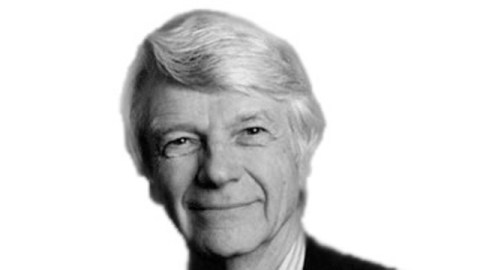Gerontologist Robert Butler

Robert Butler, who died July 7th at the age of 83, “was a pioneer who sought to redefine aging, for both individuals and society,” writes Dr. Richard J. Hodes, Director of the National Institute on Aging at the National Institutes of Health:
He challenged the status quo, looking at what could be achieved in later life, not at what might be lost. Blessed with both intelligence and personal charisma, Bob took his view of aging to legislators, clinicians, and academics, where for over half a century, he convincingly made the case for research and for policies seeking a better life older adults, free of age discrimination and enhanced by effective and available health care.
I am most directly familiar with one of Bob’s most important contributions—the formation of the National Institute on Aging (NIA) at NIH. Here, in those early days of aging research, Bob set in place a visionary approach, building a broad program of basic, biomedical, social, and behavioral research that remains at the core of NIA’s efforts today. As one of the first psychiatrists specializing in gerontology, Bob understood that an integrated approach to aging was critical for research. In public health, Bob was one of the early medical leaders to stress prevention. He believed that both screening for and treatment of medical conditions with age, coupled with individual and family attention to lifestyles and physical fitness, formed the basis for a healthy life.
Bob was particularly proud of focusing public and research attention on Alzheimer’s disease and other dementias, recognizing that dementia was not necessarily an inevitable consequence of growing older. Along with Dr. Donald Tower, who was then the Director of what is now the National Institute of Neurological Disorders and Stroke (NINDS), Bob organized the first national scientific meeting on Alzheimer’s at NIH in 1977.
After leaving NIH in 1982, Bob continued to break new ground. He led a new Department of Geriatrics at Mt. Sinai School of Medicine. He continued his advocacy for older people worldwide by founding the International Longevity Center USA where until his death he pursued policies and research aimed at improving the lives of older people.
It is hard to know where to begin to describe the professional and personal legacy that Bob Butler leaves behind. Just two days after Bob arrived at NIA, he was awarded a Pulitzer Prize for his book, “Why Survive? Being Old in America,” where he introduced us all to what he termed “ageism.” Bob’s exceptional character, effectiveness, and commitment most certainly changed attitudes toward aging. The field of aging research—and anyone seeking a better life with age—has lost a best friend.
In his 2008 Big Think interview, Butler, who coined the term “ageism,” talked about a wide range of issues related to aging, including the question of why we age, common myths about aging, the future of longevity science, and how the study of aging benefits humanity. Asked when humanity might be able to stop aging, Butler said he didn’t believe there would be a magic pill that stops the process of getting old: “What I think will happen is that there will be a slowing in the process of aging and therefore a delay in the onset of diseases and with better medical research and better available treatments and particularly with what is called genomics or the introduction of gene efforts and regenerative medicine—which means the ability to replace cells, tissues, and organs. We may see people much stronger, healthier, and vigorous in their 120th year.”





